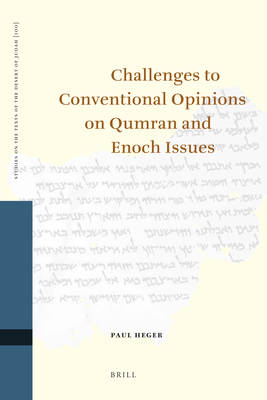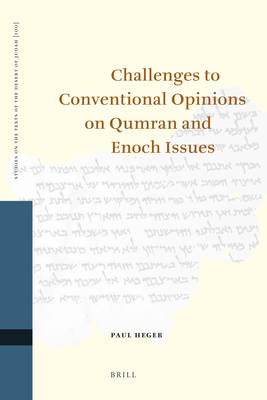
- Afhalen na 1 uur in een winkel met voorraad
- Gratis thuislevering in België vanaf € 30
- Ruim aanbod met 7 miljoen producten
- Afhalen na 1 uur in een winkel met voorraad
- Gratis thuislevering in België vanaf € 30
- Ruim aanbod met 7 miljoen producten
Zoeken
Omschrijving
Some literary expressions in the Dead Sea Scrolls led scholars to allege that their authors professed a dualistic and deterministic worldview of Zoroastrian origin and that the omission of Moses and Sinai from the Enoch writings evinces that a segment in Jewish society marginalized the Torah, adopting Enoch's prophecies as its ethical guideline. This study challenges these allegations as utterly conflicting with essential biblical doctrines and the unequivocal beliefs and expectations of Qumran's Torah-centered society, arguing that scholars' allegations are erroneously based on interpreting ancient texts with a modern mindset and influenced by the interpreter's personal cultural background. The study interprets the relevant texts in a manner compatible with the presumed doctrines of ancient Jewish authors and readers.
Specificaties
Betrokkenen
- Auteur(s):
- Uitgeverij:
Inhoud
- Aantal bladzijden:
- 432
- Taal:
- Engels
- Reeks:
- Reeksnummer:
- nr. 100
Eigenschappen
- Productcode (EAN):
- 9789004217225
- Verschijningsdatum:
- 9/12/2011
- Uitvoering:
- Hardcover
- Formaat:
- Genaaid
- Afmetingen:
- 160 mm x 240 mm
- Gewicht:
- 867 g

Alleen bij Standaard Boekhandel
+ 641 punten op je klantenkaart van Standaard Boekhandel
Beoordelingen
We publiceren alleen reviews die voldoen aan de voorwaarden voor reviews. Bekijk onze voorwaarden voor reviews.











